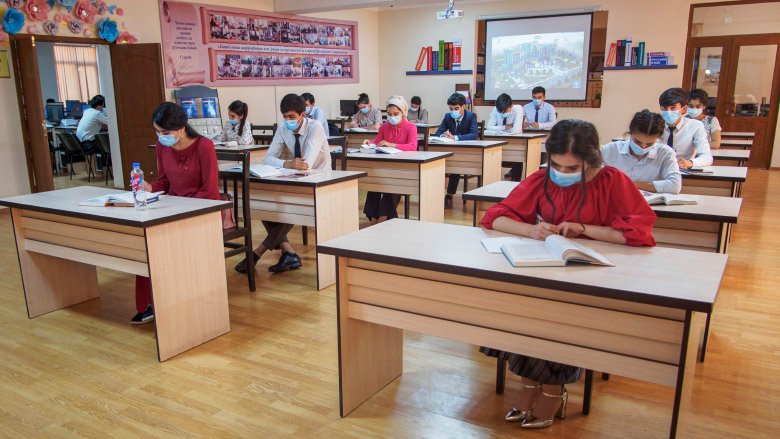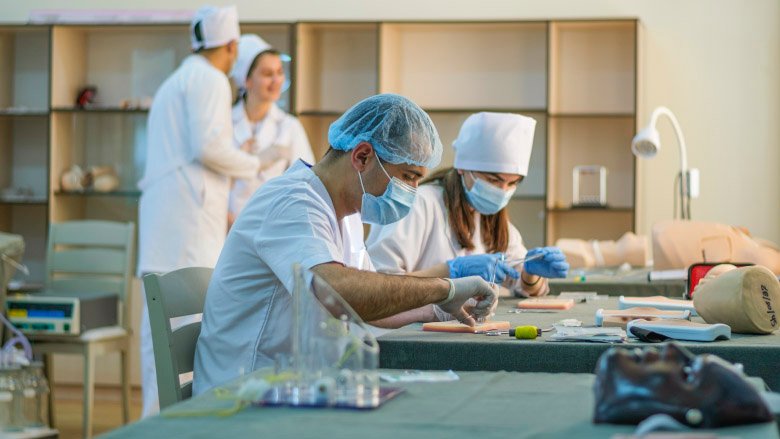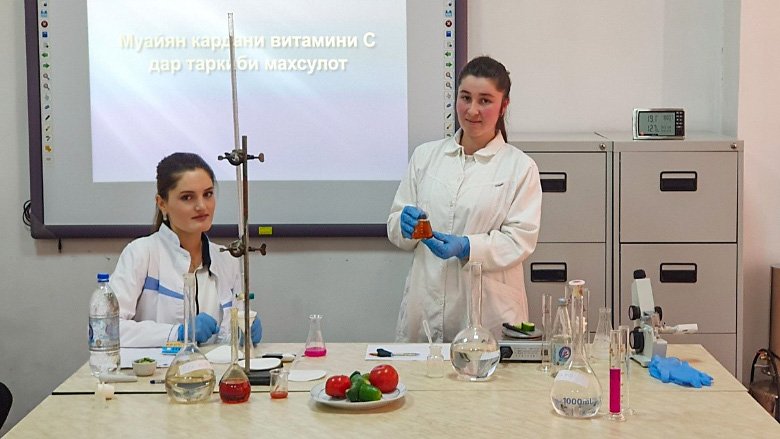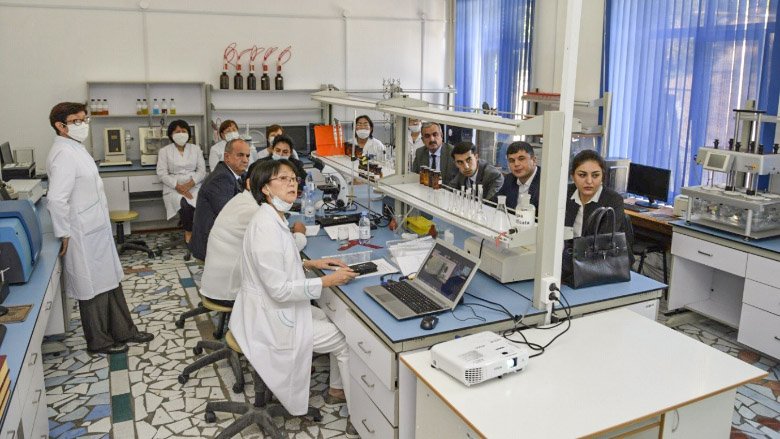Tajikistan, a country with the youngest and fastest growing population in the Europe and Central Asia region, has been rapidly moving towards an industrial economy. The demand for “new economy” skills—such as collaboration, verbal and nonverbal communication, analytical skills, conflict resolution—has been growing, while the demand for manual skills, often required in low productivity agriculture and retail sectors, has been decreasing. Yet surveys suggest that local firms often identify an inadequately skilled workforce as a significant constraint.
Tajikistan has sought to address this by improving the quality and labor-market relevance of its higher education system. To support these efforts, the World Bank approved $15 million for the Higher Education Project (HEP), which helped increase the competitiveness of young people and equip them with knowledge and skills that rapidly growing local and regional markets demand.
In total, HEP provided 49 grants to 26 higher education institutions across Tajikistan to support efforts to upgrade academic programs and curriculum, improve the environment for learning and skills development, offer career development opportunities, and encourage female university enrollments. Gender-related activities included short term vocational courses, residential programs such as improving the quality and safety of girls’ dormitories, mentoring programs with women in the workforce, and workshops on job searches to address the challenges female students face. In total, roughly 28,000 students benefitted from HEP activities, nearly 40% of whom were female. Moreover, over 200 faculty members were able to travel abroad to exchange knowledge with universities in other countries and more than 2,800 teachers developed their qualifications through trainings and workshops.
Hands-On Experience for Medical Students
The Khatlon State Medical University (KSMU) was one institution of higher learning that benefited from HEP support. The university renovated its learning environment and strengthened its academic programs to enhance students’ skills.
“As we are a newly established university, the support provided by the project was of special value for us,” says Qurbonali Mardonzoda, Assistant to KSMU’s General Surgery Chair.
KSMU established and equipped four modern labs for medical students to practice their skills, reviewed and updated their academic programs, and created an online portal for lectures and other educational resources, which are now accessible to a wider audience. Students, who used to only observe doctors carrying out surgeries in operating rooms, can now try out techniques firsthand, building their confidence and better preparing them to care for the public.
“In addition, the experience of collaborating with international partners like the University of Pavia (Italy) and Al-Farabi Kazakh National University that we received as part of the project activities was an important value added. Through this collaboration we were able to arrange study tours and exchange knowledge and experience,” says Qurbonali.
Encouraging Women and Girls into STEM Fields
The Tajik Technical University (TTU) in Dushanbe also received grant financing under HEP to support girls studying in science, technology, engineering and mathematics (STEM) fields. Gulnora Anvarova, a TTU faculty member who is an electrical engineer by profession, says that there are many stereotypes in Tajikistan about engineering not being suitable for women because it is associated with “heavy lifting” and “greasy hands.”
“We met with many girls and parents in many regions of the country to hear their concerns and raise awareness about a wide range of opportunities in engineering professions. We took the girls to companies, where they met with successful women-engineers. We created five innovation labs at the university to help students develop new skills. This work was possible with HEP support, and it yielded great results,” adds Gulnora. This past year, roughly 20% of those enrolled at TTU were girls, compared to 3% before.
While progress is being made, more must be done. Data shows that women earned 60% of what men earned in 2017 and those women that do seek higher education still largely study in fields traditionally seen as women’s work—education, health, and social services.
TTU’s efforts are helping to break down some of these gender biases and encouraging young women to explore careers in STEM. Nilufar Ismadiyorova, who studied IT engineering at TTU was one of the volunteers engaged in awareness raising activities supported by HEP. Participating in these activities changed her outlook and inspired her to continue her studies. After Nilufar received her diploma from TTU, she decided to pursue another degree in Germany.
“I want to tell all girls to believe in themselves and their dreams. Even when things get hard at times, it is ok. We should always know that we can make it,” she says.
Pushing forward on Quality Assurance
Higher education plays an important role in Tajikistan because employment prospects are much stronger for graduates with university degrees. The employment rate among adults with a university degree (81%) is roughly twice as high as the employment rate of those who have not completed general secondary education (41%). And workers with higher education on average have a 40% higher wage than similar workers with only secondary education. But to have value, degree programs must provide learners with skills.
As Khalim Saidzoda, HEP coordinator in the Ministry of Education and Sciences, highlights, “One specific area, which the project provided important support to us, is quality assurance—a key pillar of the education system.”
In many countries, quality assurance is the main instrument through which education authorities encourage higher education institutions to enhance the employability of their graduates. To strengthen quality assurance in higher education in Tajikistan, HEP supported the development of new guidelines for institutional accreditation of Tajik universities in partnership with the Estonian Quality Assurance Agency. These guidelines were successfully piloted in three Tajik universities and are now being prepared for national implementation. They describe a transparent process and standardized instruments for universities’ accreditation, which is a step towards aligning Tajikistan’s quality assurance system in higher education with the requirements of Bologna Process.
“I would like to thank the World Bank for the support to enhance the capacity of our higher education system,” says Lutfiya Abdukholikzoda, Tajikistan’s Deputy Minister of Education and Sciences.
“Youth is Tajikistan’s main asset, so we are glad that the World Bank through the Higher Education Project invested in raising the competitiveness of young people and expanding their future prospects,” says Saodat Bazarova, Team Leader of the Project in the World Bank.
Through HEP-supported activities, university students across Tajikistan are finding opportunities to explore new career paths and gain valuable skills employers need—helping the country to build a more qualified and skilled workforce better able to meet the ever-evolving demands of today’s labor market.







